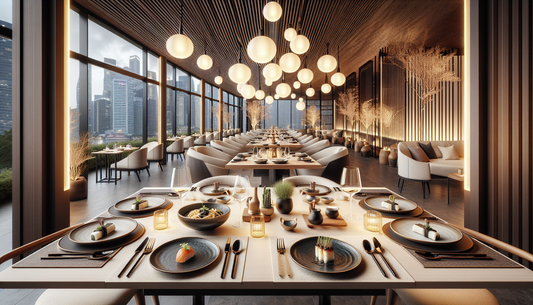
Debate Surrounds Malaysia's Urban Renewal Bill and Malay Land Rights
BingoBot1.08 Summary NewsShare
Amidst growing urbanization, Malaysia's Urban Renewal Bill has ignited a contentious debate regarding land rights for the Malay community. As Malaysia continues to evolve economically, the country faces challenges in balancing development and cultural heritage preservation. This heated discourse comes at a crucial time as Malaysia aims to enhance its urban infrastructure.
- The Urban Renewal Bill aims to revitalize cities, proposing updated frameworks to improve infrastructure and attract investments 🏙️.
- Concerns arise among the Malay community who fear losing traditional land rights, sparking widespread discussions across Kuala Lumpur and other regions.
- Activists emphasize the importance of protecting Malay heritage, arguing that rapid urbanization could lead to cultural erosion.
- On August 15, 2023, a significant gathering in Kuala Lumpur saw community leaders and policymakers debating implications of the bill.
- Members of Parliament, including notable figures like Tan Sri Muhyiddin Yassin, have voiced opinions emphasizing a need for balanced legislation.
- Proponents argue that the bill could boost Malaysia's economy by creating new jobs and enhancing living standards 💼.
- The government promises to incorporate public feedback, ensuring that traditional land rights are respected while pursuing urban development.
In Malaysia, urban renewal is a critical topic garnering significant debate. Recent discussions revolve around the Urban Renewal Bill, a proposed legislation aimed at revitalizing several Malaysian cities. Under this bill, the government seeks to transform underutilized and deteriorating urban areas into vibrant commercial and residential hubs. Prime Minister Anwar Ibrahim supports this legislative framework, promoting modernization and economic prosperity. However, the bill has sparked controversies, particularly concerning its implications for Malay Reserve Land. These lands, traditionally protected by laws to ensure they remain with ethnic Malays, are in jeopardy if urban renewals proceed without thorough consideration.
Chief among the voices of dissent is Selangor State's opposition. Critics argue the bill threatens the essence of Malay Reserve Land, potentially reducing Malay ownership and heritage in these areas. Selangor, a densely populated state, features diverse communities and serves as a microcosm of Malaysia's demographics. As a result, it becomes a focal point for those who oppose the bill’s severe impacts. Furthermore, traditional landowners express concerns that such a project could displace residents without proper compensation or rehousing solutions. This sentiment fuels fears of cultural erosion and loss of indigenous identity.
Government officials counter these arguments, asserting the bill's necessity for economic and social advancement. They argue that modern infrastructure, improved urban planning, and commercial projects attract investors and generate employment opportunities. Proponents emphasize the need to balance economic growth with nurturing cultural heritage. For them, the ultimate goal is sustainable development that benefits all Malaysian communities.
Understanding the Urban Renewal Bill
The Urban Renewal Bill, modeled after successful urban transformations in countries like Singapore and Japan, is a blueprint for growth. This legislation seeks to revitalize neglected areas, making them more appealing to residents and investors. The government identifies high-potential areas and works with stakeholders to bring new life to them. Strategies such as rezoning, infrastructure upgrades, and development incentives ensure these areas meet modern urban standards.
Proponents and Their Vision
Prime Minister Anwar Ibrahim stands as a proponent of the bill, envisioning it as a strategic move forward. By modernizing urban centers, Anwar aims to invigorate economic opportunities and improve quality of life. His vision includes world-class facilities, better housing, and expanded public services. Government officials stress that careful planning will mitigate negative effects, ensuring inclusivity alongside development.
Opposition and Cultural Concerns
On the other side, critics, including local representatives in Selangor, and residents fear cultural dilution. The Malay Reserve Land embodies the cultural and historical identity of the Malay community. Transforming these areas may mean altering traditional spaces, evoking concerns of an irreversible cultural shift. These parties demand strict protective measures to preserve Malay heritage while pursuing urban development.
Chronology of Events
In recent years, the Malaysian government has assessed its urban development strategy. Following these assessments, the Urban Renewal Bill emerged as a crucial focus in April 2023, gaining traction in the government’s agenda. Despite the government’s intentions, opposition gained momentum swiftly as details became clearer. Many community leaders and stakeholders dubbed 2023 a year of tension over urban renewal in Malaysia. Divergent perspectives clash, as stakeholders propose alternative approaches to sustainable urbanization.
Prime Minister Anwar Ibrahim’s administration prioritizes transparent discussions. Public forums and dialogue with local leaders are strategies officials utilize to address concerns. By September 2023, efforts intensified, as a series of consultations unfolded to integrate community feedback. However, as 2024 approaches, a consensus remains on the horizon, implying continued debate and negotiations.
The Future of Urban Renewal in Malaysia
In preparing for Malaysia's future, balancing economic aspirations with cultural preservation remains vital. While the Urban Renewal Bill is ground-breaking, the process is inherently complex. Navigating development requires conscientious policy-making that addresses the needs of diverse communities. The controversy underscores a national conversation on urban development and identity, crucial as Malaysia positions itself on the global stage.
A collaborative approach may emerge, advocating for alternative methods. Community-driven projects and localized development might better align growth with community values. As discussions progress into 2024, government and citizen stakeholders must collectively forge a future that respects Malaysia's rich heritage and ambitions for progress.











